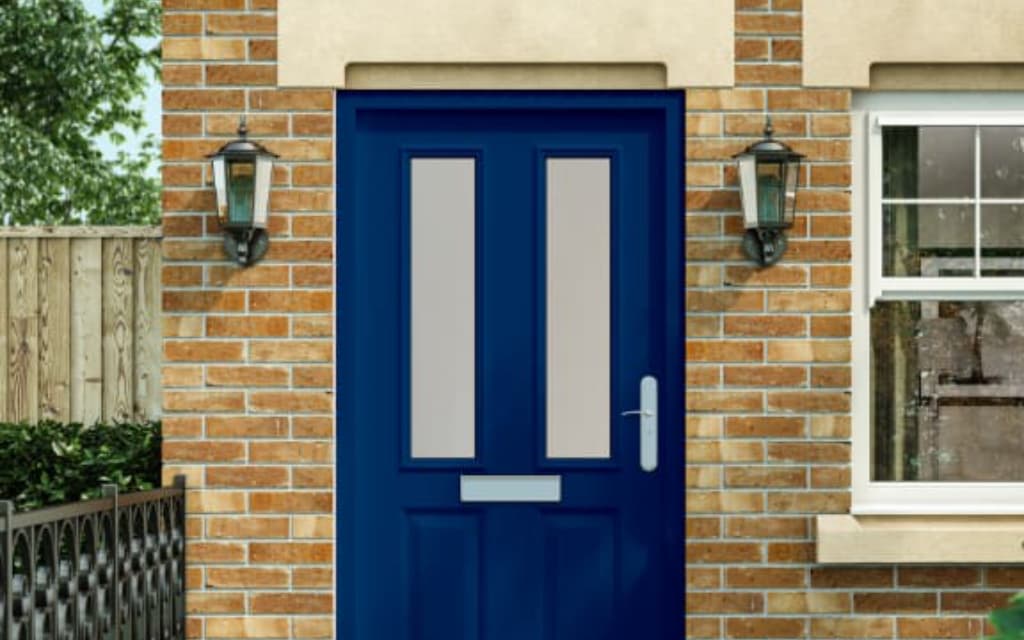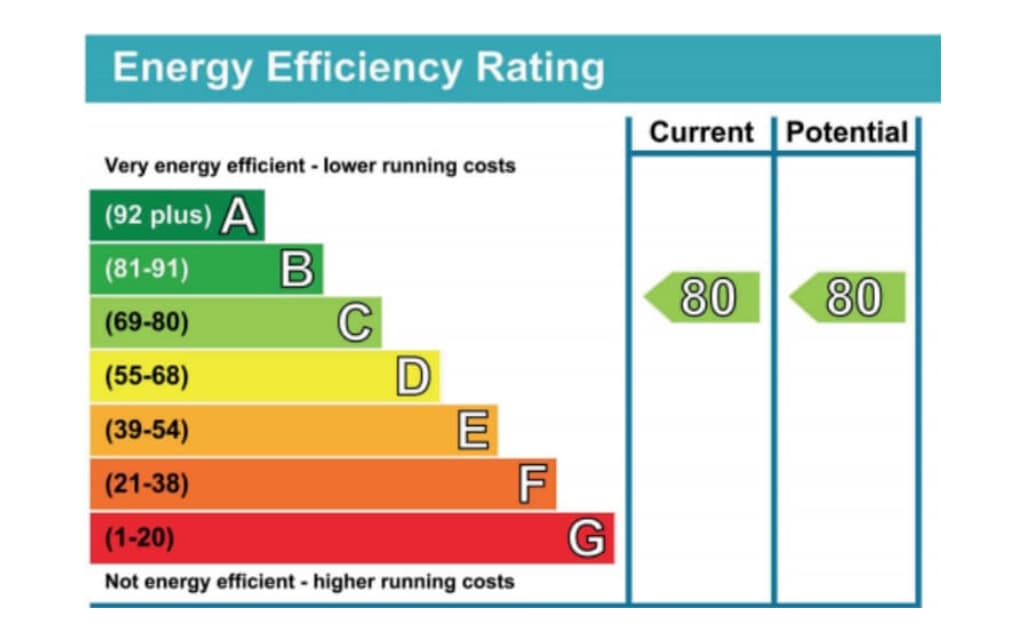Door security ratings are accreditations that test and certify that products are compliant with specific security standards. During the tests, an attack on the door for varying periods with various attack tools takes place. The longer the attack time, the higher the doors’ performance rating is.
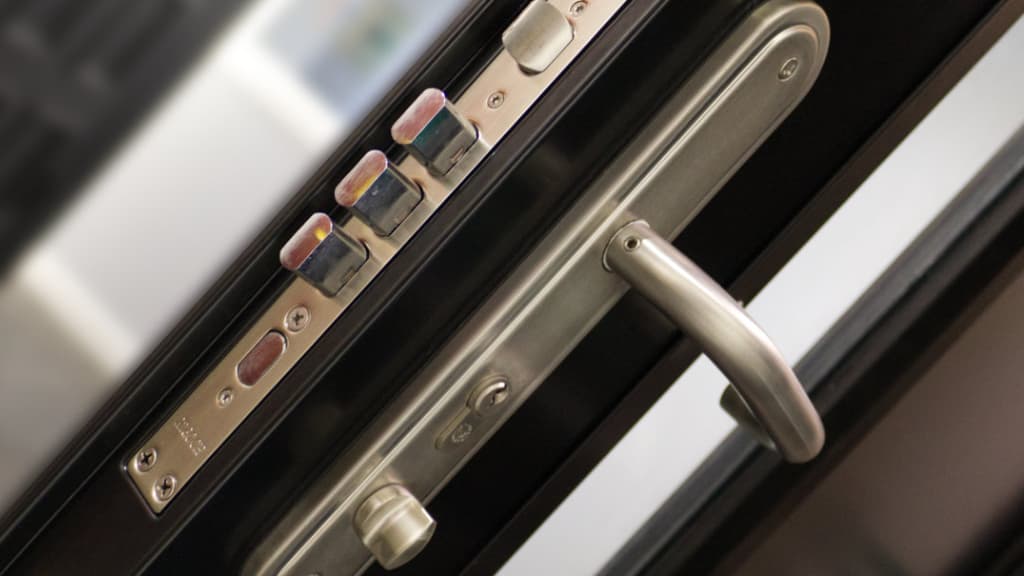
In this blog, we look in detail at PAS24, STS202, and LPS1175 security ratings that are adhered to by manufacturers. We also compare the certifications and explore which door security rating is best for domestic and commercial properties.
What are door security ratings?
Security ratings were introduced by the industry to ensure doors are manufactured to a certain standard. When designing and building steel front doors, reputable manufacturers will adhere to the security industry’s door security ratings.
Door security ratings inform consumers of the level of security the front door will provide via a grading system. Through a certified test, steel doors receive the security grade according to the specific level of sustained attack they can withstand.
What is PAS24?
PAS24 (Publicly Available Specification) is a security standard to ensure that all manufacturers make and sell products that reach the security industry benchmark for quality. This certification is achieved once a door set undergoes a thorough test and is assessed for high-security performance levels. Designed for a product to withstand specific break-in methods of burglars in the UK, PAS24 provides reassurance to a consumer that homes will be sufficiently protected against criminals.
PAS24 is an ideal security rating for a domestic property because the doors are assessed as a whole, instead of individual components. This means it can be certified that the finished product which the customer receives offers a sufficient level of security. Unlike other door security ratings, the product is graded by a pass/fail certification system and does not have detailed security gradings.
Is PAS24 the same as Secured by Design?
PAS24 is often mistaken for Secured By Design (SBD). Both are accreditations that test and certify that products meet security standards, however, they are different standards. Secured by Design is a police security initiative, operated on behalf of the UK Police. Its objective is to ensure that products will help to keep homeowners safe. Products must be certified by the PAS24 accreditation before they are to be considered by Secured by Design, which highlights why a PAS24 accreditation is so important to be certified with.
What is STS202?
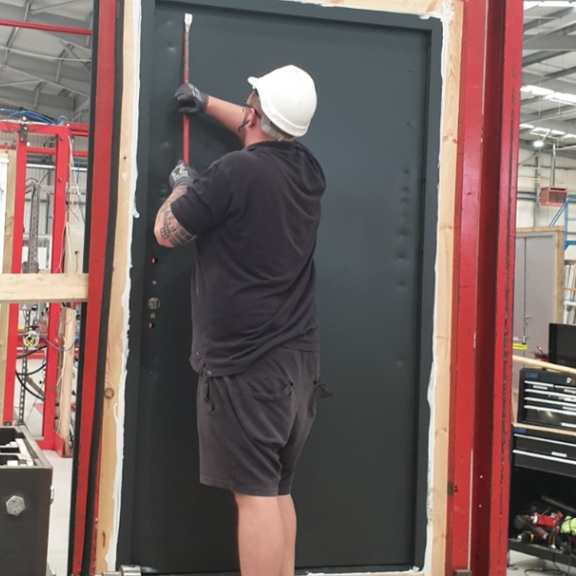
STS202 standard is a requirement for burglary resistance on products, including doors and windows. STS202 is an enhanced test and specifies the use of a range of attack tools and times to those used within the Loss Prevention Certification Board (LPCB), including attacks with power tools.
The STS202 security doors test was developed by certification body Certisecure. Certisecure is a scheme for manufacturers and suppliers, offering consumers confidence that a product will deliver property protection. In the UK, Certisecure supports the Secured by Design initiative. STS202 does not extend to cover the higher levels of risk addressed within LPS1175 Security Rating 7 or above and F15 and above (see later on in this article).
This door security standard will more likely be on products designed for industrial settings. This means that the door sets will be reinforced and are not brought for aesthetic purposes. Instead, the STS202-rated steel doors are ideal for keeping a commercial property secure from professional intruders.
How is STS202 tested and rated?
The tests focus on high-intensity, consistent attacks on the door set itself, locking cylinders, beading, and most importantly, the glazing unit. These standards go beyond the type of attack by an opportunistic thief and offer strict standards that certify door sets as offering high levels of resistance. STS202 specifies a range of attacks that focus on areas most likely to be targeted by burglars, such as glazing units.
An explanation of STS202 security levels
Each product is graded along a scale of Burglary Resistance (BR), from BR1 through to BR6. BR1 offers a lower grade security rating and BR6 a higher one.
| Level of Grading | What you need to know |
|---|---|
| BR1 and BR2 | Separate attack levels that a door has to withstand to be able to be credited this standard. Associated with opportunist break-ins. Typical attacks in this category are likely to avoid unnecessary risk and noise such as heavy banging or power tool usage. Attack tools used: hand tools, levers, and physical force. |
| BR3 and BR4 | More stringent attack levels from more experienced burglars. Criminals plan their attacks well and are prepared to make noise. Attack tools used: spanners, lock-picking tools, screwdrivers, pliers, mole grips, axes, large crowbars, forceful kicks, and blows. |
| BR5 and BR6 | Covers professional burglars who plan their attacks on high-risk, high-security properties. No regard to noise levels. Attack tools: power tools. |
It’s important to note that a door rated BR1 is not recognised by Secure by Design, due to the low level of security it provides to a consumer.
What is LPS1175?
LPS1175 is one of many LPS (Loss Prevention Standard) standards that are published by the LPCB (Loss Prevention Certification Board). LPCB is a certification board specifically offering accreditation to security systems and products that meet strict standards and test requirements. The security rating focuses on the physical security of a range of intruder-resistant building components, including door sets, usually within an industrial setting. Doors with an LPS1175 certification are typically reinforced and not designed for aesthetic appeal, similar to doors with an STS202 rating.
How is LPS1175 tested and rated?
LPS1175 security ratings are measured by using different tool kits and different attack durations against a product. These ratings are then split into eight different security ratings (SR levels), with each one representing a particular threat scenario.
LPS1175 uses different tool kits and varying attack durations to certify a product with a security rating. The ratings are split into eight security ratings (SR levels), each representing a threat scenario. As the ratings rise, both tool-kit and attack duration change. The idea is that an attacker is likely to use more aggressive tools if they are committed to the attack, which means they will spend longer trying to break through the door.
| Security Rating | Tool Category | Min – Max Attack Time |
|---|---|---|
| SR1 – Based on low domestic risk and low commercial risk. This rating is not recognised by Secure by Design. | A – inc. adhesive tape, rope, wire, cable cutter, spanners, wrenches, knife, pliers, screwdriver. | 1 – 10 min |
| SR2 – Based on medium domestic risk and lower commercial risk. | B – inc. bolt cutter, claw hammer, hand drill, junior hacksaw, metal plate shears, pipe wrench, pliers screwdriver. | 3 – 15 min |
| SR3 – Based on low commercial risk. | C – inc. crowbar, drill, gas torch, hacksaw, hammer, scissor jack, wood chisels. | 5 – 20 min |
| SR4 – based on medium commercial risk. | D – inc. drill, sledgehammer, bolt cutters, plate shears. | 10 – 30 min |
| SR5 – based on a high commercial and mission-critical risk. | D+ – inc. reciprocating saw, jigsaw, circular saw, 5 drill bits, sledgehammer, steel wedges | 10 – 30 min |
| SR6 – Professional attempt at forced entry using highly specialist power tools. | E inc. couldn’t find info for this | 10 – 30 min |
| SR7- A professional means of attempting forced entry into higher value storage areas generally after penetrating the facade. | F inc. couldn’t find info for this | 10 – 30 min |
| F Inc. couldn’t find info for this | G inc. couldn’t find info for this | 20 – 60 min |
A comparison of door security ratings
It can feel overwhelming when confronted with the various door security ratings and what they mean. Below, this infographic helps to provide an idea of the standard of security you need for your property.
Each security rating is listed along the bottom in grey. Above these are the various levels of security that are given following a certified test. Along the left-hand side is an arrow that indicates whether it is a low or very high-level risk of security. From here, you can compare and contrast the levels of security each door security rating can provide you with. PAS24 rating is simply a pass/fail grading system.
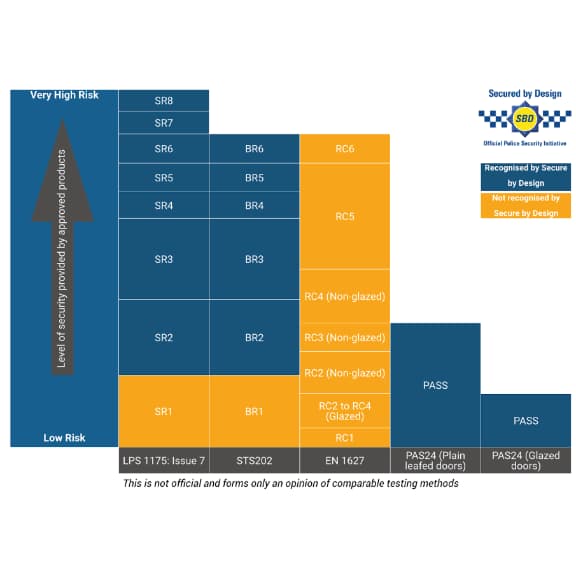
What is the difference between LPS1175, STS202 and PAS24?
PAS24-certified security doors offer a basic level of safety, which is ideal for domestic properties. LPS1175 and STS202 certified security doors are both interchangeable and offer a more thorough testing process, offering consumers an assured higher level of security. Both are independent testing bodies, which focus on similar resistance levels to security threats.
What is EN1627?
EN1627 is a European Standard that specifies requirements for the burglar resistance of a construction product and classification systems for door sets, and other security products. This European Standard does not directly cover the resistance of locks and cylinders to attack with picking tools. It also does not cover precast concrete elements.
EN1627 does not cover the attack of electric, electronic, and electromagnetic-operated burglar-resistant construction products using attack methods that might defeat these characteristics. This European Standard does not apply to doors intended for domestic use. Instead, the main intended uses are giving safe access for goods and vehicles accompanied or driven by persons in industrial, commercial, or residential premises.
What security rating do I need for my door?
Firstly, consider where the door will be applied and your specific security requirements. Take note of the surrounding area and environment of the property. For instance, if the area around the door is insufficiently lit and easily accessible, you may require a steel door with a higher door security rating. It’s also worth researching the local crime rate in the area of the property.
For domestic properties, a PAS24 certification could be sufficient. This certification is geared towards domestic security and recommended by Secure by Design. New build properties are required to have PAS24 security certification to be compliant with current regulations.
Please note:
STS202 and LPS1175 offer a more intense testing system for higher-risk properties, such as large commercial and industrial premises. We would advise you to talk to your security provider to discover which rating would be sufficient for your property and the type of security it will provide.
We Always Recommend a Certified Product to our Customers
At Lathams Security, we always recommend a certified product to our customers to ensure maximum security for all entryways for residential, commercial, and industrial properties. The front door of a property is the first line of defence against opportunistic burglars or professional intruders. Purchasing a door set certified with a door security rating means you can rest assured you’re getting the right level of protection for your business premises or home.
Our versatile range of steel security doors, featuring our Ultra High-Security Steel Door, has applications for a wide variety of uses; including commercial, residential, and industrial buildings.
FAQs (Frequently Asked Questions)


